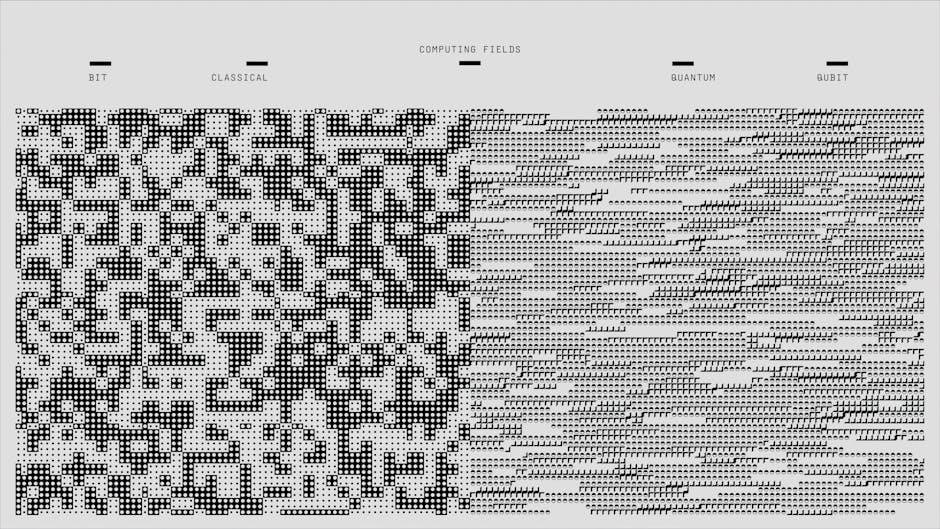charge code lookup ky pdf
Charge code lookup in Kentucky refers to numerical classifications linked to the Kentucky Revised Statutes, organizing criminal and non-criminal offenses for legal reference and public access, managed by the Kentucky State Police․
1․1 Understanding the Importance of Charge Codes in Kentucky
Charge codes in Kentucky are essential for organizing and classifying criminal and non-criminal offenses, ensuring legal processes are efficient and consistent․ They provide a standardized system for law enforcement, courts, and public agencies to reference specific statutes, aiding in crime reporting, data analysis, and public safety efforts․ Understanding these codes is crucial for interpreting legal documents, tracking offenses, and ensuring transparency in the justice system․
1․2 Overview of the Kentucky Revised Statutes (KRS)
The Kentucky Revised Statutes (KRS) serve as the official compilation of state laws, organizing criminal and non-criminal offenses into a structured legal framework․ Regularly updated by the Kentucky General Assembly, the KRS provides clear definitions, penalties, and classifications for various charges, ensuring consistency in legal processes․ It is a vital resource for understanding charge codes, as each code directly references specific statutes within the KRS, facilitating accurate legal interpretation and application․
Structure of Charge Codes in Kentucky
Kentucky charge codes are numerical classifications linked to specific offenses, organized by severity and type, providing a standardized system for legal referencing and efficient data management․
2․1 Format and Classification of Charge Codes
Kentucky charge codes are structured as numerical identifiers linked to specific offenses under the Kentucky Revised Statutes (KRS)․ These codes classify offenses into criminal and non-criminal categories, with varying severity levels․ Traffic violations, for example, are assigned codes based on the offense’s nature and severity, while criminal charges are classified by felony or misdemeanor status․ The format ensures uniformity in legal documentation and data management, facilitating efficient record-keeping and retrieval․ The Kentucky State Police oversee the classification system, updating codes periodically to reflect legislative changes and legal requirements․
2․2 Examples of Common Charge Codes
Common Kentucky charge codes include traffic violations like speeding (e․g․, 00001 for 1 MPH over the limit) and criminal offenses such as assault on a service animal (e․g․, 13214)․ These codes are linked to specific Kentucky Revised Statutes (KRS) sections, providing clarity in legal proceedings․ For instance, 189․390 pertains to speeding violations, while 525․200 addresses assault on service animals․ These examples illustrate how charge codes categorize offenses for legal reference and public access․

How to Lookup Charge Codes in Kentucky
Kentucky charge codes can be looked up using online databases, the Kentucky Legislature’s website, or the Kentucky Court of Justice portal, ensuring easy access to legal references․
3․1 Online Databases and Resources
Online databases and resources provide efficient access to Kentucky charge codes, enabling users to search by code, offense, or statute․ The Kentucky Legislature’s website and the Court of Justice portal offer comprehensive lists of charge codes, linked to relevant statutes․ Additionally, legal research databases and tools, such as those provided by the Kentucky State Police, allow users to download PDF guides and access detailed charge code descriptions, ensuring accurate and up-to-date information․
3․2 Using the Kentucky Legislature’s Website
The Kentucky Legislature’s website offers a robust platform for charge code lookup, providing direct access to the Kentucky Revised Statutes (KRS)․ Users can navigate to the “Statutes” section, where they can search by KRS number or offense description․ The website also includes a charge code lookup tool, enabling users to find specific codes and their corresponding statutes․ Additionally, downloadable PDF guides and detailed charge code descriptions are available for offline reference, ensuring easy access to legal information․
3․3 Accessing Charge Codes Through the Kentucky Court of Justice Portal
The Kentucky Court of Justice Portal provides a user-friendly interface for accessing charge codes․ Users can search by offense description, KRS number, or UOR codes, with options to filter results for specificity․ The portal offers detailed charge code descriptions, classifications, and corresponding statutes․ Additionally, it allows users to download charge code tables in PDF format, ensuring easy access to comprehensive legal information for public and professional use․
Understanding the Kentucky Uniform Crime Reporting (UOR) Codes
Kentucky Uniform Crime Reporting (UOR) codes categorize criminal offenses, providing standardized classifications for law enforcement and statistical tracking․ Managed by the Kentucky State Police, these codes align with KRS statutes and offense levels, aiding in accurate crime reporting and data analysis statewide․
4․1 What Are UOR Codes?
UOR (Uniform Crime Reporting) codes are standardized classifications assigned to criminal offenses in Kentucky, enabling consistent tracking and reporting of crimes․ These codes, managed by the Kentucky State Police, align with Kentucky Revised Statutes (KRS) and offense levels, providing a framework for law enforcement to categorize and analyze criminal activities statewide․ They are essential for accurate crime reporting, statistical analysis, and maintaining public safety records․
4․2 Significance of UOR Codes in Charge Lookup
UOR codes play a crucial role in charge lookup by standardizing crime classification, enabling efficient data retrieval, and ensuring accuracy in legal proceedings․ They provide a consistent framework for categorizing offenses, facilitating uniform reporting across jurisdictions․ This system aids law enforcement, attorneys, and researchers in accessing and analyzing crime data, making it indispensable for maintaining accurate criminal records and supporting public safety initiatives in Kentucky․
Common Charge Codes in Kentucky
Common Kentucky charge codes include traffic violations like speeding (e․g․, 00001-00005) and criminal offenses such as assault (e․g․, 13118, 13213)․ These codes categorize offenses for legal reference and public access, aiding law enforcement and judicial processes efficiently․
5․1 Traffic-Related Charge Codes
Traffic-related charge codes in Kentucky include violations like speeding, with specific codes for each mph over the limit (e․g․, 00001 for 1 mph over)․ These codes, linked to Kentucky Revised Statutes (KRS), categorize offenses such as speeding (189․390) and refusal to take alcohol tests (189․200)․ They provide a standardized system for law enforcement and courts to process traffic violations efficiently, ensuring consistency in enforcement and legal proceedings across the state․
5․2 Criminal Charge Codes
Criminal charge codes in Kentucky classify offenses such as assault on service animals (e․g․, 13214 for 1st degree) and various assault charges under extreme emotional disturbance (e․g․, 13250, 13259)․ These codes, linked to Kentucky Revised Statutes (KRS), distinguish between felonies and misdemeanors, providing a structured framework for legal proceedings․ They are essential for law enforcement, courts, and legal professionals to process and reference criminal offenses accurately and efficiently across the state․

Obtaining Charge Code Information
Obtaining charge code information in Kentucky involves submitting requests to government agencies, utilizing online databases, and accessing resources through the Kentucky State Police․ The Kentucky Open Records Act allows individuals to request charge code data, though some records may be restricted for privacy reasons․
6․1 Submitting Requests to Government Agencies
Submitting requests to government agencies involves mailing or faxing inquiries to the Open Records Custodian․ The Kentucky State Police provides criminal and traffic reports through its Records Branch․ Requests must include specific details like charge codes or case numbers․ The Kentucky Open Records Act ensures access to non-restricted records, promoting transparency․ Individuals can also submit requests for older fee schedules or charge code data through designated channels․
6․2 Using Open Records Requests for Charge Code Data
Under the Kentucky Open Records Act, individuals can request charge code data by submitting open records requests․ These requests can be mailed or faxed to the designated custodian․ Specific details like case numbers or charge codes must be included for accurate retrieval․ While many records are accessible, some may be restricted due to privacy or legal protections, balancing transparency with confidentiality in charge code information dissemination․

Role of the Kentucky State Police in Charge Code Management
The Kentucky State Police manage charge codes through their Computer Technologies Section and Records Branch, assigning UOR codes to criminal offenses and providing annual crime reports for public access․
7․1 Responsibilities of the Kentucky State Police
The Kentucky State Police are responsible for managing and assigning Uniform Crime Reporting (UOR) codes to criminal offenses․ They maintain detailed records, ensure accuracy in charge code classifications, and provide annual crime reports․ The KSP also oversees the administration of charge code data, supporting law enforcement and legal professionals․ Their role includes updating codes, training personnel, and ensuring compliance with state laws, making them a critical resource for charge code lookup in Kentucky․
7․2 Accessing Annual Reports and Crime Data
The Kentucky State Police provides annual reports and crime data through their official website and designated portals․ These reports include detailed statistics on criminal offenses, traffic violations, and UOR codes․ Users can access these resources via the KSP’s Computer Technologies Section or Records Branch․ The reports offer insights into crime trends, charge code classifications, and law enforcement activities, ensuring transparency and public access to essential information․
Difference Between Criminal and Non-Criminal Charge Codes
Criminal charge codes are linked to Kentucky Revised Statutes (KRS) and involve penalties, while non-criminal codes address administrative violations without criminal penalties, differing in legal implications and enforcement․
8․1 Understanding Criminal Charge Codes
Criminal charge codes in Kentucky are numerical classifications linked to the Kentucky Revised Statutes (KRS), representing felony and misdemeanor offenses․ These codes define specific crimes, such as assault, theft, or drug offenses, and outline corresponding penalties․ They are used by law enforcement and courts to classify and prosecute criminal acts․ Criminal codes are critical for legal proceedings, ensuring consistency in charging and sentencing․ They differ from non-criminal codes, which address administrative or regulatory violations without criminal penalties․
8․2 Understanding Non-Criminal Charge Codes
Non-criminal charge codes in Kentucky are numerical classifications linked to specific statutes, covering traffic, administrative, or regulatory violations․ These codes represent offenses like speeding, parking violations, or minor misdemeanors, which do not result in criminal penalties․ They are essential for legal procedures and public access, providing clarity on non-criminal infractions and their corresponding resolutions, distinct from felony or misdemeanor criminal charges․

Challenges in Charge Code Lookup
Challenges include outdated information, restricted access to certain records, and the complexity of navigating multiple databases․ These issues can hinder efficient and accurate charge code retrieval․
9․1 Dealing with Outdated Information
Outdated charge codes can lead to legal misunderstandings and inaccurate offense classification․ Regular updates are essential, as new codes are added or existing ones modified․ Users must rely on official sources like the Kentucky State Police website or legal databases for the most current information․ Cross-referencing with the Kentucky Revised Statutes ensures accuracy and avoids errors in legal proceedings or public record searches․
9․2 Navigating Restricted Access to Certain Records
Accessing certain charge code records in Kentucky may be restricted due to privacy laws or ongoing investigations․ While the Kentucky Open Records Act allows public access to many documents, some records may be withheld to protect sensitive information․ Users may need to submit formal requests or seek legal permissions to obtain restricted data, ensuring compliance with state privacy regulations and transparency standards․

Recent Updates to Kentucky Charge Codes
Kentucky periodically updates charge codes to reflect legislative changes, adding new offenses like human trafficking and revising existing classifications to ensure accuracy and legal compliance statewide․
10․1 Legislative Changes Affecting Charge Codes
Kentucky’s legislative updates have added new charge codes, such as human trafficking under KRS 529․100․ Traffic violations, including speeding under KRS 189․390, have also been updated․ The Kentucky State Police manage these changes, ensuring codes reflect current laws and enhance legal precision․ These updates aim to maintain accurate and enforceable charge classifications, supporting legal processes across the state․
10․2 Examples of Newly Added Charge Codes
Newly added charge codes in Kentucky include human trafficking under KRS 529․100 and offenses related to service animals, such as assault on service animals under KRS 525․200․ Additionally, updated traffic violation codes, like speeding offenses under KRS 189․390, reflect legislative updates․ These codes ensure accurate classification of offenses, aiding legal professionals and the public in understanding charges effectively․ The Kentucky State Police manage these updates to maintain precise charge code records․

Resources for Further Assistance
Official Kentucky state websites and legal research databases provide comprehensive charge code information․ Resources include the Kentucky Legislature’s website and the Kentucky Court of Justice portal for accurate legal references․
11․1 Official Kentucky State Websites
Official Kentucky state websites provide direct access to charge code information, including the Kentucky Legislature’s website and the Kentucky Court of Justice portal․ These platforms offer comprehensive resources like the Kentucky Revised Statutes (KRS), charge type code tables, and UOR code descriptions․ They enable users to search by code or offense, ensuring accurate and up-to-date legal information for public access and reference․
11․2 Legal Research Databases and Tools
Legal research databases like Westlaw, LexisNexis, and Casemaker provide extensive access to Kentucky’s charge codes, statutes, and case laws․ These tools allow users to search by code numbers, KRS references, or offense descriptions․ They also offer charge code tables and legal interpretations, making them invaluable for legal professionals and the public seeking precise charge code information in Kentucky․
